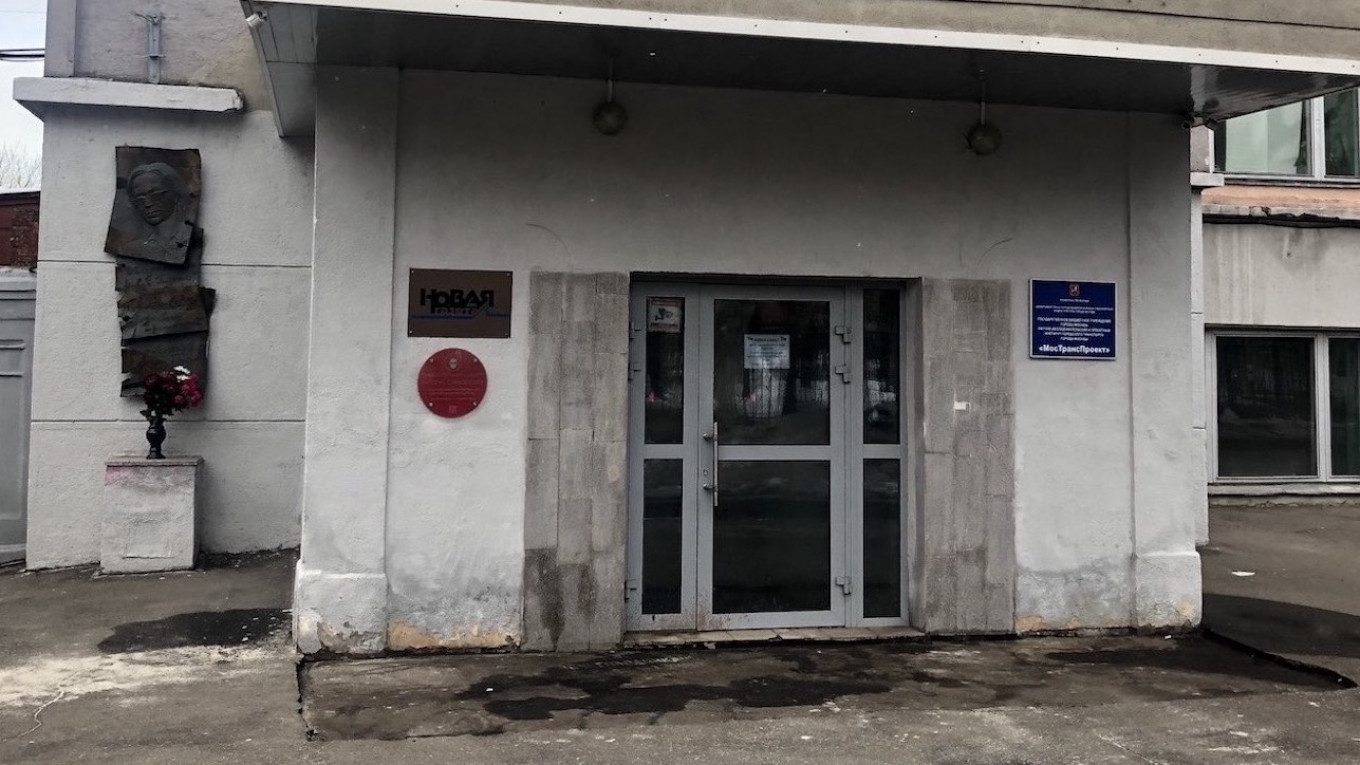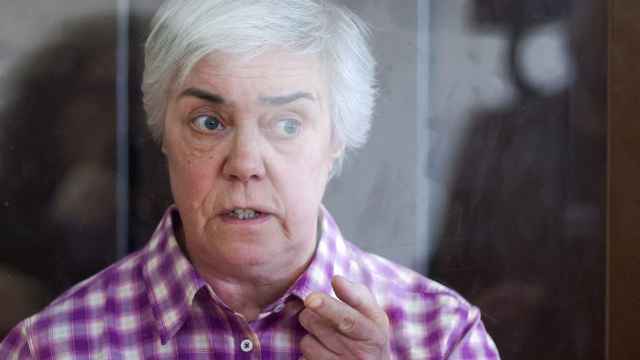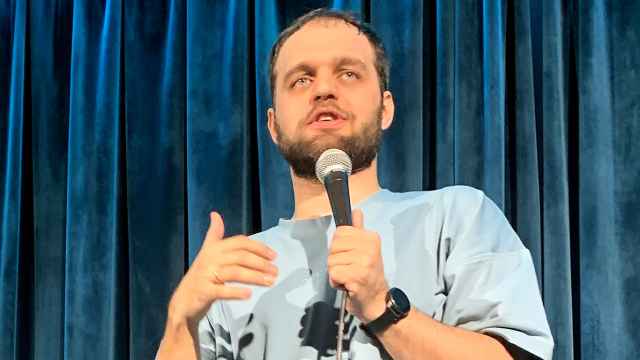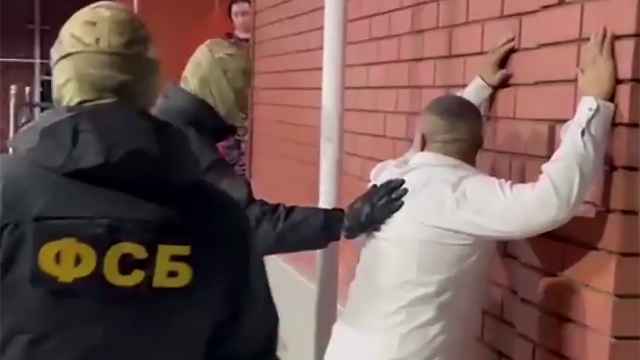On the way to work at Russian newspaper Novaya Gazeta last Monday morning, journalists noticed a strong chemical stench on the street outside their central Moscow office. By the time they sat down at their desks they had spread a clear, noxious substance throughout the building on the soles of their shoes.
Only months after opposition leader Alexei Navalny was near-fatally poisoned with a military-grade nerve agent, the apparent chemical attack struck fear into many of the paper’s staff. Days later, an elite Chechen regiment released a video interpreted as claiming the attack and demanding Russian President Vladimir Putin punish Novaya Gazeta for reporting on extrajudicial killings in the autonomous region.
“We will continue with our investigations,” the paper’s long-serving editor-in-chief Dmitry Muratov told The Moscow Times.
“That is our answer to these threats.”
For Novaya Gazeta — for decades Russia’s leading investigative newspaper and known for breaking stories on the downing of flight MH17 and alleged gay purges in Chechnya — the attack came as a reminder of the risk its independence carries at a time when the Kremlin’s tolerance for Russia’s few remaining independent media outlets appears to be waning.
For the paper’s journalists, threats of violence for reporting on Chechnya are nothing new.
When the Russian government in 1994 went to war against separatists in Chechnya — a small, mountainous region on Russia’s southern Caucasian flank — Novaya Gazeta, founded only a year before, got its first big break.
“From its earliest days, Novaya has staked a lot of its reputation on the Chechen story,” said Sergei Parkhomenko, a journalist and political commentator.
“It created a strange sort of relationship between Chechnya and the newspaper.”
In particular, the work of reporter Anna Politkovskaya, who made her name documenting human rights abuses by the Russian army in Chechnya, cemented the paper’s reputation as Russia’s leading investigative outlet.
Her 2006 murder by an unknown assassin in her apartment building’s elevator left an indelible mark on Novaya Gazeta, while also winning the newspaper international fame.
One of at least four of the paper’s reporters murdered since its founding, Politkovskaya’s office has been left untouched since her death. Outside Novaya Gazeta’s Moscow headquarters, a memorial bust stands in her memory.
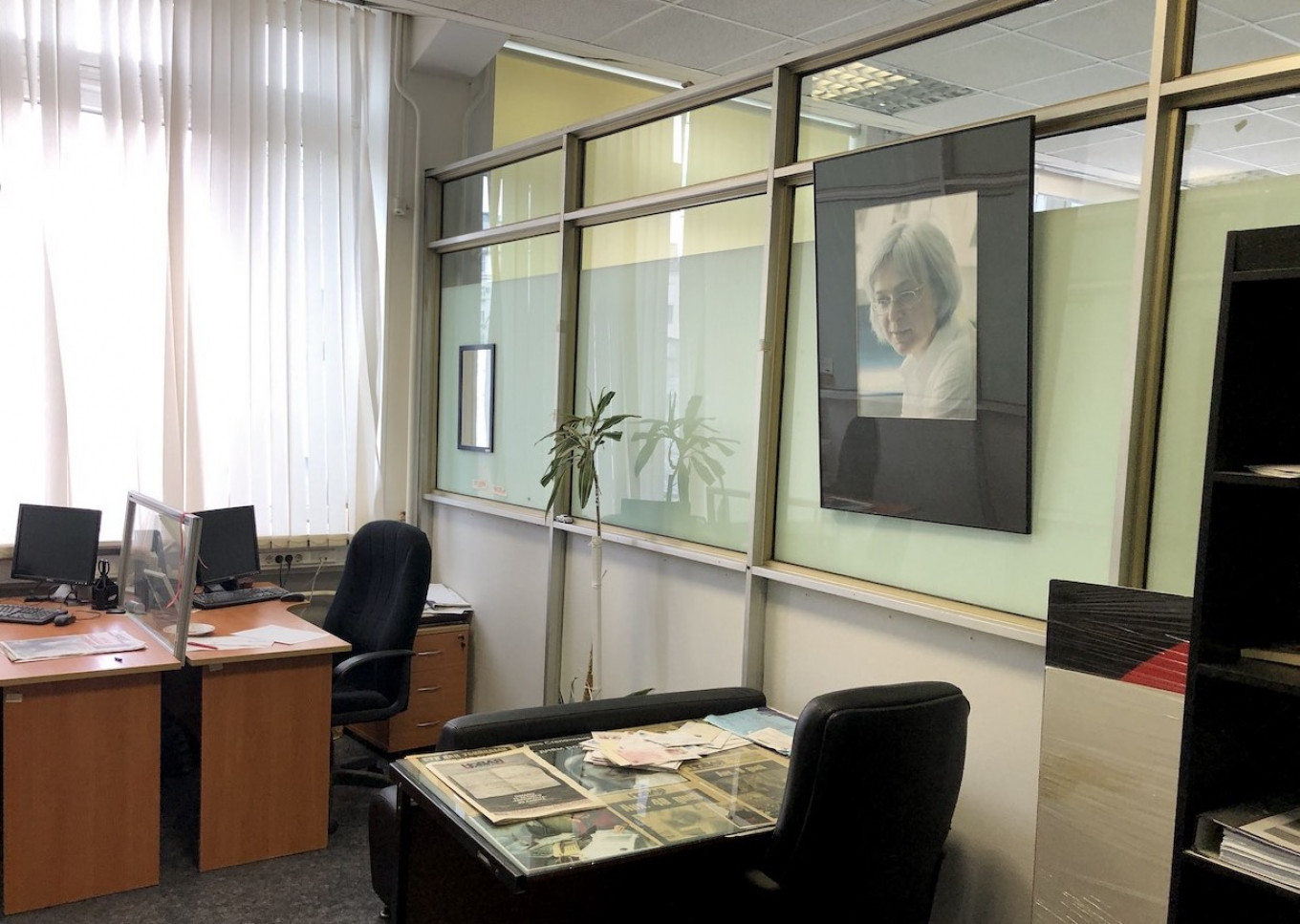
By the time of Politkovskaya’s murder, Novaya Gazeta was already an exception in the Russian media landscape.
As Putin consolidated his power in the early 2000s, hard-hitting media outlets like business daily Kommersant and private television station NTV — which had risen to fame alongside Novaya Gazeta for their aggressive reporting — were bought out one-by-one by Kremlin-friendly businessmen. Overnight, their editorial lines shifted in a dramatic, pro-Putin direction.
In theory, Novaya Gazeta was only spared a similar takeover by its unusual corporate structure. A controlling stake in the newspaper is owned by a staff cooperative, with smaller portions of the company belonging to former Soviet leader Mikhail Gorbachev and businessman Alexander Lebedev.
According to media experts and staff, however, the real reasons the newspaper has been allowed to survive are more complex.
“The question of why Novaya can still exist in Russia today is an eternal one,” veteran reporter Pavel Kanygin told The Moscow Times in an interview in his office, where a faint chemical smell lingered.
On some level, said Kanygin, the continued existence of Novaya Gazeta and a handful of other liberal-leaning media outlets, including the Moscow Echo radio station, is useful to the authorities because they produce quality, unvarnished journalism rarely found in the pro-Kremlin media.
“Our government structure is totally corrupt, but there are still sane and rational people in it, who understand that independent media is not only useful for the middle classes but for the Kremlin too.”
Likewise, Novaya Gazeta’s totemic status abroad has played to the paper’s advantage, with its continued existence useful to a Kremlin looking to distract international attention from broader curbs on press freedom.
“We’ve become an institution,” said Kanygin.
“Putin and others like to point out to the West that we still exist to demonstrate that independent media is alive.”
Well connected
In Novaya Gazeta’s fight for survival, personal relationships have been invaluable.
Editor-in-chief Muratov is believed to be well connected in the Kremlin. In 2019, he was one of the key figures who successfully lobbied authorities for the release of jailed Meduza journalist Ivan Golunov, who had been detained on fabricated drug trafficking charges.
According to the investigative outlet Proekt, the paper’s chief Kremlin patron is Sergei Chemezov, a close friend of Putin since the 1980s who now leads Rostec, a state-owned defence industry corporation.
For Novaya Gazeta, the reported patronage of Chemezov — a relative liberal known for sponsoring both independent media and Russia’s communist parliamentary opposition — is a double edged sword.
While his backing protects the paper from enemies in the Kremlin, it potentially also limits its journalistic freedom. Proekt has reported that Novaya Gazeta stories involving Chemezov must be discussed with the Rostec chief in advance, an allegation Muratov denies.
More generally, Novaya Gazeta’s status as a publication legally registered in Russia carries with it certain restrictions.
In contrast with a new generation of upstarts including Proekt and The Insider — which earlier this year published a joint investigation with U.K.-based website Bellingcat alleging FSB involvement in Navalny’s poisoning — Novaya must pick its journalistic battles carefully.
“In Russia, journalists do have some red lines and we can’t cross too far over them,” said Kanygin.
“That’s the reality of today’s journalism.”
In particular, said staff, stories related to Putin’s family and private life are off-limits, and likely to invite retaliation from the Kremlin.
“Anyone working in the Russian media space legally knows that there are certain rules,” said Kirill Martynov, Novaya Gazeta’s politics editor.
Severed sheep’s head
Today, however, there is an increasing sense among both observers and Novaya Gazeta staff that the unique set of circumstances under which the newspaper has been able to survive and thrive are coming to an end.
Specifically, the Russian government’s turn toward anti-western positions abroad and heightened authoritarianism at home leaves Novaya Gazeta’s traditional position as a bastion of free media more vulnerable than ever.
“The Kremlin isn’t really interested in what the outside world thinks anymore,” said political commentator Parkhomenko.
“Novaya doesn’t serve the purpose it used to. Time is running out for it.”
With the outlook for the paper increasingly bleak, harassment has increased. A severed sheep’s head and funeral wreath arrived in the post in 2018, after the publication of an investigation into a private military company allegedly owned by Kremlin-linked businessman Yevgeny Prigozhin.
For Martynov, the prospect of closure has become very real, amid an ongoing crackdown on political opposition and independent media in the wake of mass protests in January.
“I think we are relatively near the point where our existence becomes identified as a problem that needs to be solved in the name of national security,” he said.
For others, the danger is that security forces’ indifferent response to threats tacitly encourages further attacks by the paper’s enemies.
Police have so far declined to launch an investigation into the recent chemical attack, while the Kremlin’s reaction has been limited to Putin’s spokesman Dmitry Peskov rebuking those who threaten journalists.
Even so, most Novaya staffers do not anticipate following a string of independent Russian outlets like Latvia-based news site Meduza that have relocated under legal pressure to the Baltic states — where Novaya already publishes a local edition.
"We intend to keep on working in Russia, because it's our country. Forcing us out will only make us more dangerous,” said Martynov.
“It’s very hard to imagine that we’d all just retire, or go and work for RT.”
Correction- This article incorrectly stated that Alexander Lebedev is London-based.
A Message from The Moscow Times:
Dear readers,
We are facing unprecedented challenges. Russia's Prosecutor General's Office has designated The Moscow Times as an "undesirable" organization, criminalizing our work and putting our staff at risk of prosecution. This follows our earlier unjust labeling as a "foreign agent."
These actions are direct attempts to silence independent journalism in Russia. The authorities claim our work "discredits the decisions of the Russian leadership." We see things differently: we strive to provide accurate, unbiased reporting on Russia.
We, the journalists of The Moscow Times, refuse to be silenced. But to continue our work, we need your help.
Your support, no matter how small, makes a world of difference. If you can, please support us monthly starting from just $2. It's quick to set up, and every contribution makes a significant impact.
By supporting The Moscow Times, you're defending open, independent journalism in the face of repression. Thank you for standing with us.
Remind me later.




